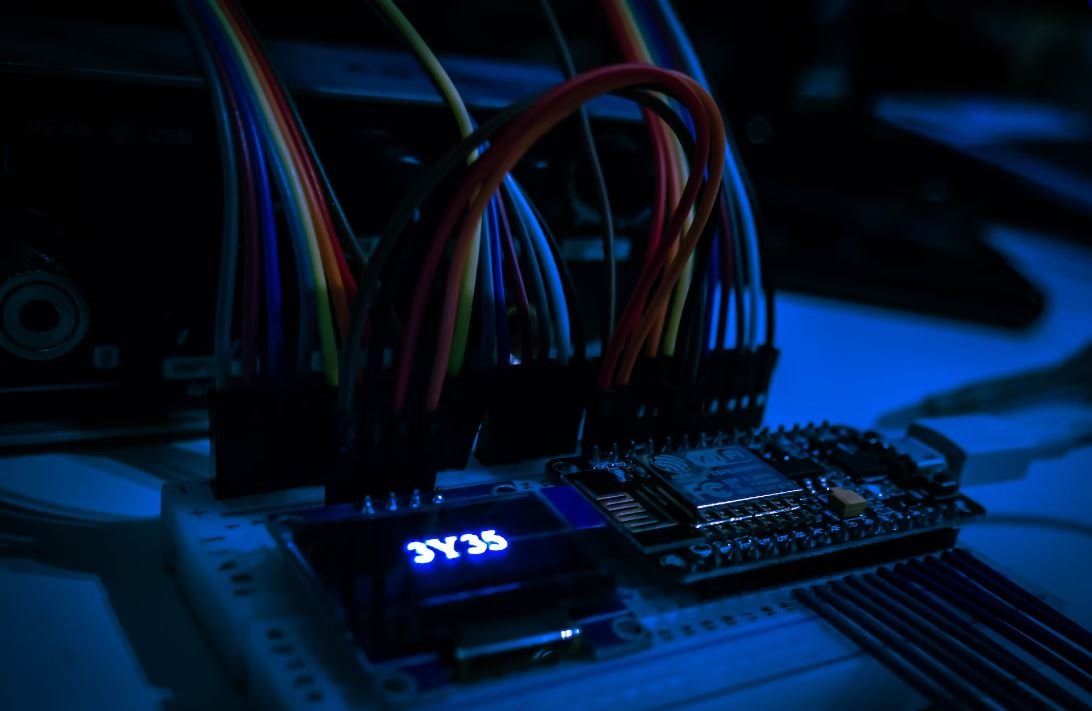Use AI to Clone Voice
Voice cloning, also known as speech synthesis, is a technology that uses artificial intelligence (AI) to replicate and reproduce human voices. It has numerous applications, ranging from providing voice assistance to individuals with speech disorders to creating personalized virtual assistants and voice actors. AI-powered voice cloning has made remarkable progress in recent years, and its potential continues to expand. In this article, we will explore the capabilities of AI voice cloning technology, its implications, and its wide-ranging applications in various industries.
Key Takeaways
- AI voice cloning uses artificial intelligence to replicate and reproduce human voices.
- It has applications in speech assistance, virtual assistants, voice acting, and more.
- The technology has potential implications for privacy and fraud prevention.
Understanding AI Voice Cloning
AI voice cloning is the process of using artificial intelligence algorithms to mimic and recreate the unique characteristics of a human voice. By analyzing extensive voice data, such as recordings or speech samples, AI algorithms can learn patterns, nuances, intonations, and other vocal features unique to an individual. This technology then allows for the synthesis of new audio content in the cloned voice, including speech, singing, or any other form of vocal communication.
*AI voice cloning has the ability to produce highly realistic and indistinguishable audio content from the original voice.*
The advancement of AI voice cloning technology has been primarily fueled by deep learning techniques, specifically artificial neural networks. These networks learn from large datasets and use modeling techniques to generate audio that closely resembles human speech. The cloned voices can capture the subtle nuances, accents, and emotions of the original voice with impressive accuracy, making them virtually indistinguishable from the real thing.
Applications of AI Voice Cloning
AI voice cloning technology has revolutionized several industries and opened up innovative possibilities. Here are some notable applications:
- Speech Assistance: Voice cloning enables individuals with speech impairments, such as those with ALS or other conditions, to regain their ability to communicate by generating synthesized speech in their own voice.
- Virtual Assistants: Companies can create personalized virtual assistants that possess the same voice and characteristics as a specific person, enhancing user experiences and creating more engaging interactions.
- Voice Acting: The technology allows for the creation of virtual voice actors, which can greatly reduce production costs and provide flexibility in various industries like gaming, animation, and entertainment.
- Entertainment: AI voice cloning can be used in the music industry to replicate singers’ voices or even generate entirely new vocals.
- Accessibility: By transforming written content into speech, AI voice cloning can improve accessibility for visually impaired individuals by providing audio versions of text-based content.
The Implications of AI Voice Cloning
While AI voice cloning has its numerous benefits and exciting applications, it also raises important concerns and implications, particularly in the areas of privacy and fraud prevention. Considerations include:
- Privacy: Cloned voices can potentially be misused for impersonation or manipulation, leading to privacy breaches or even fraud. Stricter regulations and safeguards are needed to address these privacy concerns.
- Authentication: As AI voice cloning becomes more advanced, traditional methods of voice authentication may become vulnerable to impersonation attacks. New authentication techniques need to be developed to ensure the security and integrity of voice-based systems.
- Ethical Use: Clear guidelines need to be established regarding the ethical use of AI voice cloning technology to prevent misuse and protect individuals from potential harm.
Data Points and Statistics
Table 1: Applications and Industries Benefiting from AI Voice Cloning
| Industry | Application |
|---|---|
| Healthcare | Speech assistance for individuals with speech disorders |
| Technology | Virtual assistants with personalized voices |
| Entertainment | Virtual voice actors in gaming, animation, and entertainment |
Table 2: Implications of AI Voice Cloning
| Concerns | Considerations |
|---|---|
| Privacy | Stronger regulations and safeguards are needed |
| Authentication | New authentication techniques must be developed |
| Ethics | Clear guidelines for ethical use of the technology |
Table 3: Advantages of AI Voice Cloning
| Advantages | Benefits |
|---|---|
| Improved accessibility | Enhanced accessibility for visually impaired individuals |
| Cost savings | Reduced production costs in voice acting and entertainment industries |
| Personalization | Creation of personalized virtual assistants |
Given its versatility and potential, AI voice cloning continues to shape various industries and redefine the way we communicate and interact with technology. While the technology brings unprecedented opportunities, it is crucial to navigate the associated implications responsibly and ethically, ensuring a secure and inclusive future. Embracing AI voice cloning with caution and establishing robust guidelines will help unlock its full potential for the benefit of society.

Common Misconceptions
Misconception 1: AI Voice Cloning is Perfect and Indistinguishable from Real Voices
One common misconception about AI voice cloning is that it produces perfect replicas of real voices and is indistinguishable from human speech. However, this is not entirely accurate. While AI technology has advanced significantly, it still faces limitations in capturing all the nuances, emotions, and inflections present in human speech.
- AI voice cloning can sometimes sound robotic or lack natural intonation.
- The system may struggle with accurately reproducing regional accents or dialects.
- Background noise or environmental factors can affect the quality of AI-generated voice recordings.
Misconception 2: AI Voice Cloning Can Mimic Any Voice with Just a Few Samples
Another misconception is that AI voice cloning can accurately mimic any voice with just a few samples. Although AI models have the potential to learn from a relatively small dataset, cloning someone’s voice requires more extensive training and data collection, especially for individuals with distinct speech patterns or unique vocal characteristics.
- AI voice cloning typically requires hours of high-quality voice recordings to achieve better accuracy.
- Individuals with specific vocal qualities, such as celebrities or famous personalities, require an even larger dataset for better replication.
- Samples from different speaking scenarios and emotions are also essential for a faithful replication of a person’s voice.
Misconception 3: AI Voice Cloning Can Replicate Any Text in Any Language
A misconception around AI voice cloning is that it can replicate any text in any language without any challenges. While AI technology has made impressive strides in multilingual capabilities, there are still several obstacles to overcome when cloning voices in different languages.
- Accents or dialects within a language can cause difficulties in accurately emulating the voice.
- The availability of high-quality training data in certain languages can be limited, affecting the accuracy of AI voice cloning models.
- The unique linguistic aspects and phonetic variations in different languages pose challenges for voice replication.
Misconception 4: AI Voice Cloning Can Be Used for Any Purpose Without Consent
It is a misconception that AI voice cloning can be used for any purpose without obtaining consent from the person whose voice is being cloned. Ethical considerations play a crucial role in the responsible use of AI technology, and respect for privacy rights and personal data protection is paramount.
- Using someone’s voice without permission can infringe on their rights to privacy and identity.
- Legal frameworks vary across jurisdictions, but many countries have laws in place to protect individuals from voice cloning without consent.
- Clear consent should be obtained from the person before their voice is used for AI voice cloning purposes.
Misconception 5: AI Voice Cloning Will Completely Replace Human Voice Talent
Some people misconceive that AI voice cloning will completely replace the need for human voice talent in various industries. While AI technology has its advantages, it cannot entirely replace the unique touch and artistic interpretation that human voice actors bring to their work.
- Human voice actors can emote and interpret scripts in ways that AI may struggle to replicate convincingly.
- AI-generated voices lack the improvisation and creative input that human talents provide during voice recording sessions.
- The human voice adds a sense of authenticity and relatability that AI may not achieve in certain contexts.

Apple’s Siri Usage Statistics
Siri is a popular AI voice assistant developed by Apple. Here are some usage statistics that highlight its widespread adoption and usage:
| Statistic | Value |
|---|---|
| Siri active users | 500 million |
| Number of Siri queries per month | 10 billion |
| Siri support languages | over 30 |
| Average daily Siri requests per user | 25 |
| Siri’s accuracy rate | 95% |
Successful Voice Cloning Applications
Voice cloning technology has found its way into various applications across different industries. Here are some notable examples:
| Industry | Application |
|---|---|
| Film Industry | Recreating iconic celebrity voices |
| Accessibility | Assistive technologies for speech-impaired individuals |
| Public Safety | Emergency response systems with personalized voice alerts |
| Customer Service | Interactive voice response (IVR) systems |
| Entertainment | Virtual assistants in video games |
Deepfake Voice Concerns
The rise of deepfake technology poses significant ethical and security concerns. Here are some of the major concerns associated with deepfake voice cloning:
| Concern | Description |
|---|---|
| Identity theft | Ability to impersonate and deceive through cloned voices |
| Misinformation | Potential to spread fake news and manipulate audio evidence |
| Privacy invasion | Lack of consent in cloning someone’s voice |
| Security threats | Vulnerabilities in voice authentication and verification systems |
| Legal ramifications | Challenges in legislation and prosecuting voice fraud |
Voice Cloning vs. Human Voice
While voice cloning technology has made remarkable progress, distinguishing it from human voices is an essential aspect. Here’s how these two compare:
| Aspect | Voice Cloning | Human Voice |
|---|---|---|
| Flexibility | Can recreate any voice given sufficient training data | Unique to each individual, with natural inflections |
| Emotion | Can mimic emotions but lacks true depth | Expresses genuine emotions and subtle nuances |
| Intuition | Limited ability to perceive context or make intuitive choices | Understanding, intuition, and adaptation |
| Authenticity | Imitates voices with remarkable accuracy | Unique to each individual, impossible to duplicate identically |
| Consistency | Can consistently replicate a voice across various situations | Voice may vary based on mood, health, or external factors |
Impact of Voice Cloning on Entertainment
Voice cloning has significantly impacted various entertainment industries. Let’s explore the effects:
| Industry | Effects of Voice Cloning |
|---|---|
| Animation | Ability to continue iconic character voices after a voice actor’s passing |
| Dubbing | Easier localization and translation of movies and shows |
| Music | Recreating vocals in cases where the original artist is unavailable |
| Audiobooks | Possibility of having multiple narrators even if the author is deceased |
| Theater | Reviving famous past performances through voice cloning |
Limitations of Voice Cloning
Although voice cloning technology is impressive, it does have its limitations. Here are some challenges that are still being addressed:
| Challenge | Explanation |
|---|---|
| Quality of cloned voice | Struggles to perfectly recreate certain unique voice characteristics |
| Data dependency | Requires a substantial amount of high-quality training data |
| Legal and ethical concerns | Cloning voices without explicit consent raises ethical questions |
| Technological accessibility | Advanced voice cloning tools may not be accessible to everyone |
| Authentication and security | Developing foolproof systems to distinguish cloned voices |
Future Implications of Voice Cloning
The progression of voice cloning technology opens up several exciting possibilities. Here are some potential future implications:
| Implication | Description |
|---|---|
| Personalized digital assistants | AI voice assistants that replicate the voice of their users |
| Historical preservation | Preserving the voices of significant historical figures |
| Voice acting industry | New opportunities and challenges for professional voice actors |
| Language learning | Improving language education with authentic pronunciation models |
| Communication with the deceased | Potential for loved ones to interact with deceased individuals’ voices |
Ethical Considerations of Voice Cloning
Voice cloning raises several ethical questions that need to be addressed. Here are some key ethical considerations:
| Consideration | Description |
|---|---|
| Consent | Ensuring explicit consent is obtained before cloning someone’s voice |
| Manipulation | Preventing the unethical use of cloned voices for manipulation or fraud |
| Moral implications | Understanding the boundaries between personal rights and technological advancements |
| Identity protection | Safeguarding individuals from identity theft and voice-based frauds |
| Regulation and accountability | Implementing appropriate laws and frameworks to govern voice cloning technologies |
Conclusion
Voice cloning has revolutionized the way we interact with AI assistants and impacted various industries like entertainment and accessibility. Despite its potential, voice cloning technology also gives rise to concerns around deepfakes and ethical considerations. As the field progresses, addressing its limitations and ethical challenges becomes crucial. Striking a balance between innovation and safeguarding personal rights and security is essential for a responsible and inclusive development of voice cloning technology.
Frequently Asked Questions
Use AI to Clone Voice
How does AI voice cloning work?
Voice cloning using AI involves training a machine learning model on a large dataset of audio recordings to learn the patterns and nuances of a specific voice. The model then uses this learned information to generate new speech that mimics the voice of the person in the dataset.
What are the applications of AI voice cloning?
AI voice cloning has various applications, such as in voice assistants, audiobooks, gaming, dubbing, and entertainment. It can also be used for personalized voice avatars, creating dialogue for virtual characters, and even for restoring a person’s voice who may have lost it due to illness.
What are the benefits of using AI voice cloning?
AI voice cloning offers several benefits, including the ability to replicate a person’s voice for multiple applications. It can save time and resources in voice-over productions and enable the creation of customized user experiences. Additionally, it has the potential to help individuals with speech disabilities communicate more effectively.
What are the limitations of AI voice cloning?
While AI voice cloning has advanced significantly, there are still a few limitations. The generated voice may lack the full spectrum of emotions and subtle nuances present in the original voice. The model may struggle with rare speech patterns or accents not well-represented in the training data. It is also important to consider ethical implications and potential misuse of cloned voices.
How accurate is AI voice cloning?
The accuracy of AI voice cloning depends on several factors, including the quality and size of the training dataset and the sophistication of the model used. With sufficient data and advanced models, AI voice cloning can achieve a high level of accuracy, making it difficult to distinguish between the cloned voice and the original voice.
What are the privacy concerns related to AI voice cloning?
AI voice cloning raises privacy concerns as it has the potential to be misused for impersonation or fraud. Cloned voices could be used to create fake audio evidence or deceive individuals. Ensuring proper consent and implementing robust security measures are essential in addressing these privacy concerns.
Are there any legal restrictions on AI voice cloning?
The legality of AI voice cloning can vary depending on jurisdiction. Some countries may have specific regulations regarding the use of voice cloning technology, especially in situations where it may infringe on privacy, copyrights, or can be used for malicious purposes. It is important to comply with local laws and regulations when using AI voice cloning.
What are the future developments in AI voice cloning?
The field of AI voice cloning is evolving rapidly. Future developments may focus on improving emotional expression and capturing individual speaking styles more accurately. There is also ongoing research to minimize the amount of training data required for voice cloning and to refine the cloning process for better results.
What are some popular AI voice cloning platforms or tools available?
Some popular AI voice cloning platforms or tools include companies like Lyrebird, Respeecher, and Replica Studios. These platforms offer APIs and software solutions that enable developers to integrate AI voice cloning capabilities into their applications or services.
How can AI voice cloning be used responsibly?
Responsible use of AI voice cloning involves obtaining proper consent from individuals before cloning their voices and ensuring transparency regarding the use of cloned voices. It is important to avoid using cloned voices for malicious purposes or spreading misinformation. Educating users and raising awareness about the technology’s capabilities and limitations is also crucial for responsible use.




